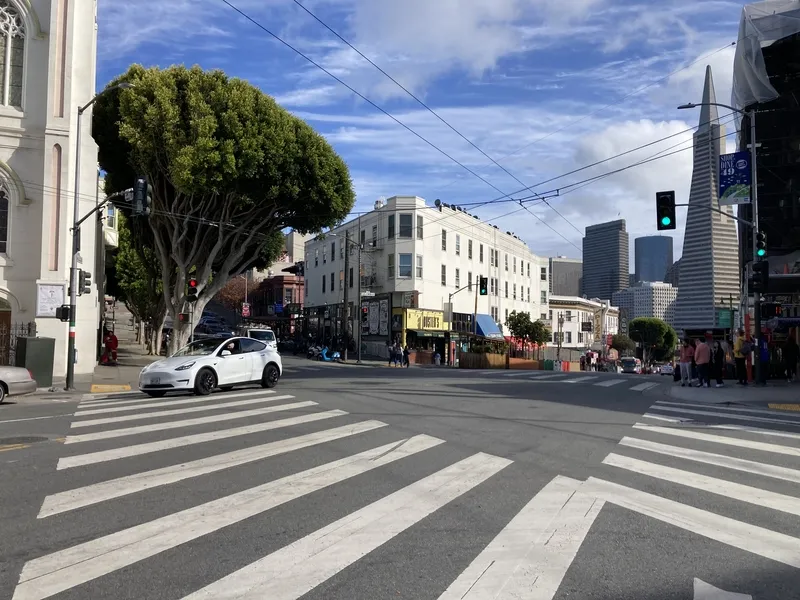San Francisco’s Public Utilities Commission (SFPUC) is to trial a ‘smart’ street lighting central management system, (CMS) developed by UK-based smart street lighting company Telensa.
The SFPUC owns, operates and maintains over half the city’s street lights and recently announced a project to replace its high pressure sodium cobra-head style light fixtures with ultra-efficient light emitting diodes (LED) luminaires.
Telensa’s PLANet (Public Lighting Active Network) street light central management sys
January 21, 2014
Read time: 2 mins
San Francisco’s Public Utilities Commission (SFPUC) is to trial a ‘smart’ street lighting central management system, (CMS) developed by UK-based smart street lighting company 7574 Telensa.
The SFPUC owns, operates and maintains over half the city’s street lights and recently announced a project to replace its high pressure sodium Cobra-head style light fixtures with ultra-efficient light emitting diodes (LED) luminaires.
Telensa’s PLANet (Public Lighting Active Network) street light central management system (CMS) will be installed in two locations in the city. Telensa is partnering with lighting company and Jam Services to deliver the project which includes the provision of three different sizes of LED luminaires.
Using Telensa’s advanced ultra narrow band (UNB) wireless CMS will enable the SFPUC to control switching and dimming of each lamp and also to measure energy usage and detect faulty street lights. The PLANet system helps customers deliver savings on energy bills and to further reduce carbon emissions.
In addition, Telensa will demonstrate its system’s ability to utilise information from traffic sensors as part of an adaptive lighting solution whereby the lighting level on roadways is automatically adjusted to suit traffic flows.
Paul Dunn, Telensa sales and marketing director said: “Our PLANet system was developed to meet stringent European standards so uses lower transmission power than US competitor systems yet has far greater range due to our ultra narrow band wireless technology. We are delighted to be involved in this innovative trial in San Francisco that demonstrates our ability to add multiple sensor types to the system and create an interactive ‘smart’ network.”
The SFPUC owns, operates and maintains over half the city’s street lights and recently announced a project to replace its high pressure sodium Cobra-head style light fixtures with ultra-efficient light emitting diodes (LED) luminaires.
Telensa’s PLANet (Public Lighting Active Network) street light central management system (CMS) will be installed in two locations in the city. Telensa is partnering with lighting company and Jam Services to deliver the project which includes the provision of three different sizes of LED luminaires.
Using Telensa’s advanced ultra narrow band (UNB) wireless CMS will enable the SFPUC to control switching and dimming of each lamp and also to measure energy usage and detect faulty street lights. The PLANet system helps customers deliver savings on energy bills and to further reduce carbon emissions.
In addition, Telensa will demonstrate its system’s ability to utilise information from traffic sensors as part of an adaptive lighting solution whereby the lighting level on roadways is automatically adjusted to suit traffic flows.
Paul Dunn, Telensa sales and marketing director said: “Our PLANet system was developed to meet stringent European standards so uses lower transmission power than US competitor systems yet has far greater range due to our ultra narrow band wireless technology. We are delighted to be involved in this innovative trial in San Francisco that demonstrates our ability to add multiple sensor types to the system and create an interactive ‘smart’ network.”








